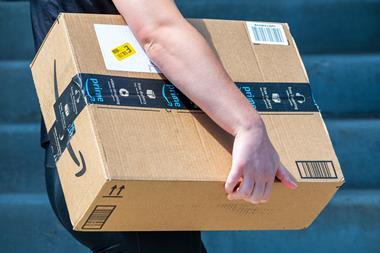With more than £9bn expected to be spent in the UK alone over the Black Friday weekend and approximately 10% estimated to be lost to fraudsters, Gowling WLG’s John Coldham examines how new technology can help
As the seasonal Black Friday shopping bonanza approaches, counterfeiters and organised criminal gangs are once again set to exploit the year’s peak sale period putting billions of pounds’ worth of consumer cash at risk.
Criminals continuously take advantage of the relentless global demand for bargains, discounts and low-priced products, misleading consumers into purchasing fake, look-alike, replica and copycat goods. High-risk items include video games, toys, cigarettes, luxury fashion labels, branded jewellery, fragrances and fake CDs and DVDs.
Counterfeiting is now the second biggest source of criminal income worldwide after drugs and people trafficking, according to the United Nations Commission on Crime Prevention and Criminal Justice. Some estimate it could represent up to 25% of all total ‘luxury goods’ sales.
Unravelling crime networks
Sophisticated crime gangs are often hiding behind a mass of obscure networks of legal entities and loopholes. In some instances, fake goods are made outside of Europe, before having logos, tags, badges and packaging added in the EU and UK, then being sold on to unsuspecting consumers.
At the same time, social media platforms are a widespread and readily accessible criminal springboard to selling fakes, and intellectual property (IP) infringing products – from luxury goods and consumer electronics to illegal streaming services.
Masterminds behind the counterfeit goods trade are typically based outside the UK and EU, often relying on a network of intermediaries to help ensure the smooth running of their criminal enterprises, while also providing a firewall and obscured shield to the upstream sections of fraudulent supply chains.

Putting brands on the trail of the fraudsters
It is important that both retailers and their partners invest significantly in developing tech-powered brand protection to help continuously safeguard products simultaneously across multiple global online sites.
Thanks to today’s clever technology, intelligent software has been developed that helps successfully manage and safeguard brands online, while also helping improve consumer protection.
Cutting edge AI can now enable retailers with the ability to perform global searches, provide reports and real-time analysis, at speed, at scale and at the click of a button – rather than in a piecemeal one-by-one fashion.
Counterfeiting costs
The identification of copycat and counterfeit products, infringing websites and fake accounts on many of the world’s largest online marketplaces, social media platforms and search engines, have the potential to pose a massive headache for global brands.
In the EU, approximately 86 million fake items valued at more than €2bn (£1.66bn), and representing nearly 6% of trade, were seized in 2022 alone.
But thanks to new tech it is now possible to request the filing of takedown notices at the click of a button as soon as breaches are spotted.
As a result, retailers can simply and easily protect themselves, and the brands they sell, from losing any more millions.
Find out more about Gowling’s new brand protection service Saturn.
John Coldham is head of brands and designs (UK) and co-leader of retail & leisure sector (UK) at international law firm Gowling WLG




























